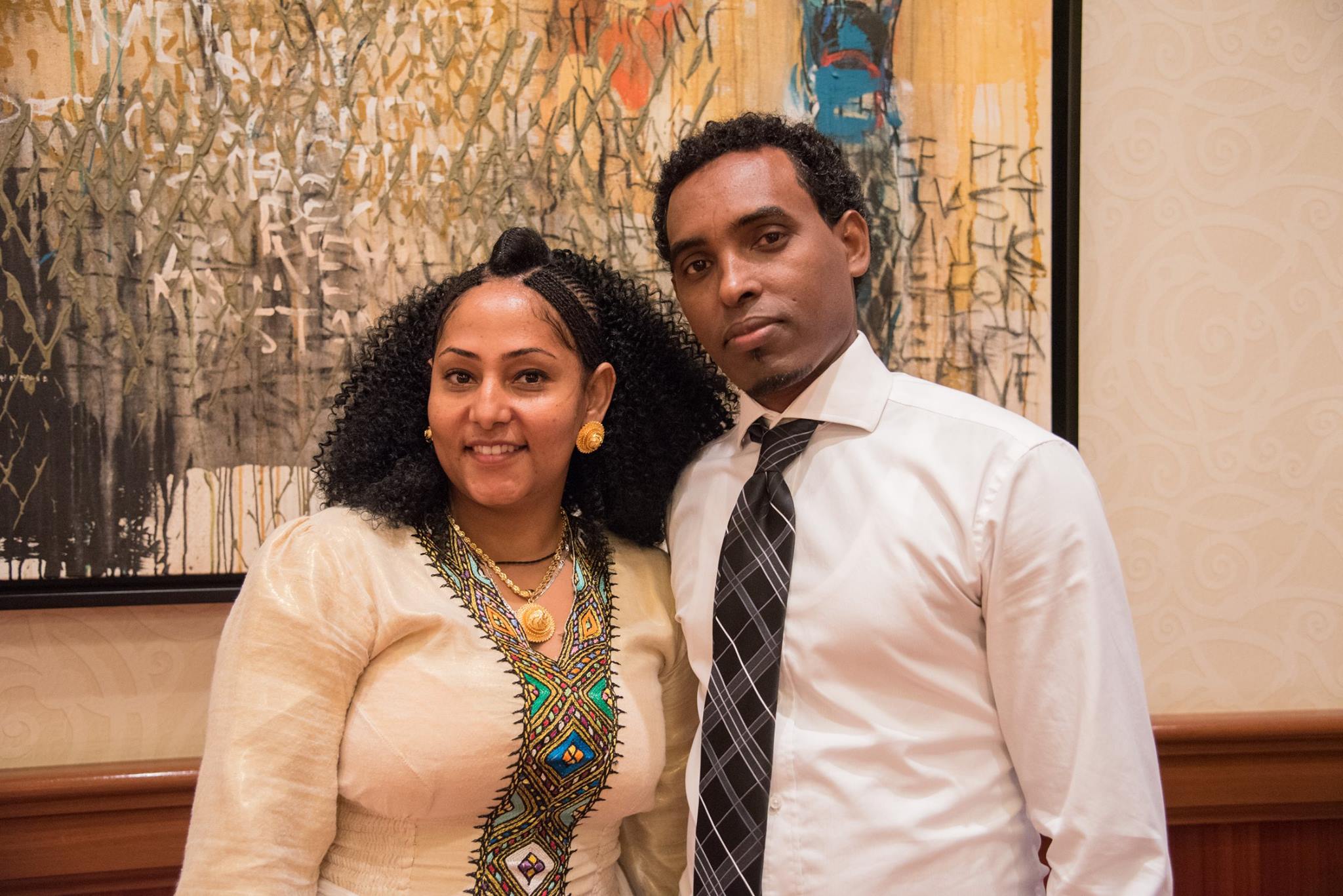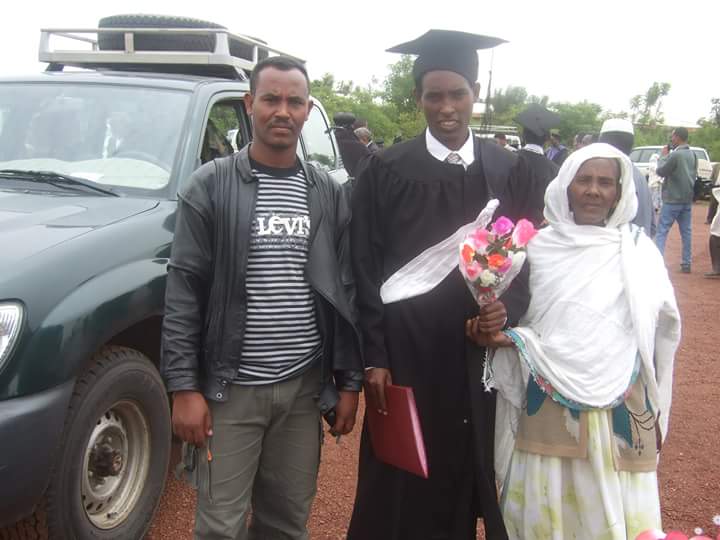Tesfai’s Story
Tesfai was born to a family of farmers in a village called Bietgebriel in Eritrea in 1987. He came from an ordinary family with parents who wanted nothing more than a good education and opportunity for their five children. Sadly, Tesfai’s father passed away when he was 13 years old, but he worked hard in school for his father’s sake. “I wanted to carry on the vision that he had for his children,” he explained. But, the Eritrean government had increasingly become a military dictatorship focused on controlling its citizens through persecution, violence, and forced military service in the ongoing war against Ethiopia. All students in Eritrea were required to attend SAWA Defense Training for at least one year under the supervision of the military. Tesfai no longer had a choice about his life’s path.
“The school had poor infrastructure, wasn’t ventilated well, and was located in a low land area where the temperature used to reach 104 degree fahrenheit.”
He reported for SAWA Defense Training on July 16th 2004. “The school had poor infrastructure, wasn’t ventilated well, and was located in a low land area where the temperature used to reach 104 degree fahrenheit,” Tesfai recalled. He suffered harassment and physical abuse from the military officials at SAWA, but that did not stop him from taking the college entrance exam in hopes of still attending the Eritrea Institute of Technology (EIT). He was accepted and when his year of service was over, he pursued his degree at EIT. Even then, the Eritrean government dictated what degree he was allowed to pursue– English literature.
“I decided to leave my beloved country and my family, although the decision was hard to swallow.”
After working hard at EIT, and even taking a professional sabbatical to teach 9th and 10th grade English at Adi-Guala High School, Tesfai graduated with an Associate’s Degree in English Literature in 2010. After graduation, the government sent him back to SAWA as a teacher. He was horrified at the abuse of young students at the hands of the military instructors, but he could do nothing. “Whatever you do, whatever you hear or see, you must keep quiet or you will be detained for no reason without trial,” Tesfai explained. After five months of teaching, he quit and began to plot his escape from Eritrea. “I decided to leave my beloved country and my family, although the decision was hard to swallow.”
On December 30, 2010, Tesfai fled from the guarded border of Eritrea into the lands of south west Sudan and found shelter in the town of Kessla. He then transferred to Shagarab Refugee Camp with the help of the United Nations High Commissioner for Refugees (UNHCR). After two months in the refugee camp, he knew he had no future there. Tesfai left for Khartoum, the capital of Sudan, but life in the city had its own dangers. On February 24, 2013 he joined a group of other desperate refugees headed for Libya. They began the journey across the Sahara desert. After extreme thirst, sandstorms, and the deaths of fellow travelers, Tesfai finally reached Tripoli.
“I had to remind myself that what I was seeing and experiencing was not fiction.”
Little did he know that life in Libya would be brutal. The lack of a central government was a breeding ground for corruption and violence. African refugees were routinely smuggled, sold, tortured, and murdered on a daily basis. “I had to remind myself that what I was seeing and experiencing was not fiction.” Tesfai’s hope of continuing his education was one thing that kept him going. He made the difficult decision to attempt to reach Europe by sea.
“These were not just pieces of paper, they were a dream.”
With his high school and college transcripts tied around his legs to keep them safe from the smugglers, he boarded a small boat to Europe. “These were not just pieces of paper, they were a dream,” he explained. On his first try, he and his friends were caught at sea and put in prison. After two months, he was able to escape by digging his way out. On his second try, he made it safely across the sea to Malta, where he was granted temporary protection. He found work as a plumber and eventually saved enough money to bring his wife to Malta. They applied for refugee status and began the long wait for an opportunity to permanently resettle in a new country.
“We don’t have any desire to harm or hurt society. I left my family, so now I want to love my neighbors and live peacefully.”
In May 2018, Tesfai, his wife, and their son Herman arrived in Indianapolis to begin their new life. For Tesfai, the best thing about living in Indianapolis is finally feeling safe and welcome. “I see a true smile from their faces when I greet people from Exodus,” he said. “This is the biggest thing you can expect from people.”
In the future, Tesfai would like to continue his education in the U.S. and start his own business for financial security. But what he values most right now is working hard at his job at Amazon, taking care of his family, and giving back to his adopted community. “We don’t have any desire to harm or hurt society. I left my family, so now I want to love my neighbors and live peacefully.”



